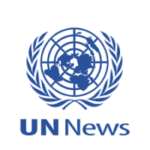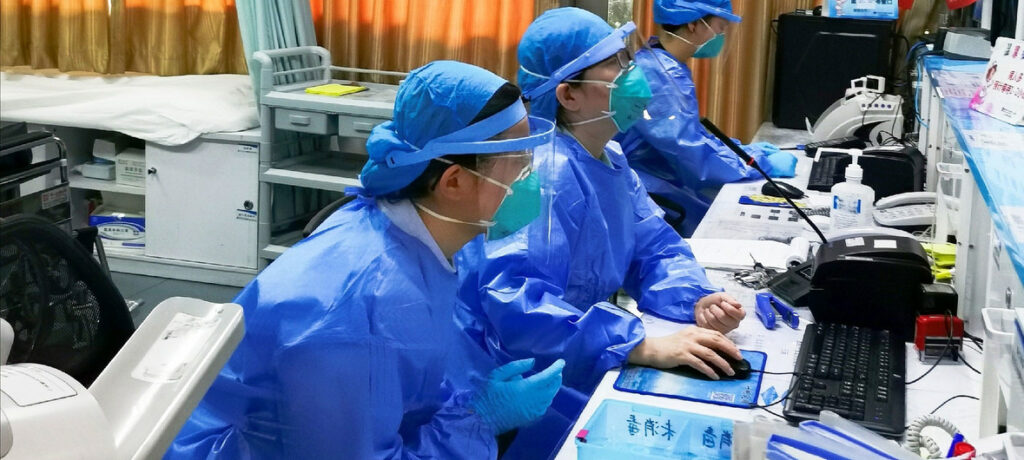Coronavirus: UN Health Agency Moves Fast to Tackle ‘Infodemic’; Guterres Warns against Stigmatization
SPOTLIGHT, HEALTH, ASIA--PACIFIC, BRICS, UNITED NATIONS, PUBLIC SERVICE, SCIENCE, 10 Feb 2020
UN News – TRANSCEND Media Servie
4 Feb 2020 – The World Health Organization (WHO) has taken steps to ensure that the coronavirus epidemic that has claimed hundreds of lives in central China does not spark a dangerous social media “infodemic” fuelled by false information.
And in the face of concerns that people of Chinese descent are being discriminated against as fears grow over the spread of the disease, UN chief António Guterres called for international solidarity and an end to any ill-founded discrimination of the outbreak’s victims.
‘Cloud’ Rumours False
WHO Director of Global Infectious Hazard Preparedness, Sylvie Briand, told journalists in Geneva on Tuesday that the agency has already moved fast to dispel an online rumour that the virus can be caught from an infectious “cloud”:
“People had suddenly the impression that the virus was in the air and…there is this cloud of virus” that can cause infection, she said. “This is not the situation. Currently the virus is transmitted through droplets and you need a close contact to be infected…So we try to clarify what we know about the science – what is still unknown – and provide recommendations that can help people to protect themselves and their families.”
Dr Briand’s comments echo those of WHO Director-General, Tedros Adhanom Ghebreyesus, who on Monday said that the agency was working with major internet platforms to ensure that WHO’s information about the coronavirus appears first in online searches.
To date, the respiratory illness has claimed 425 lives, according to WHO; there are more than 20,000 reported cases in China and 158 cases outside the country.
In an appeal for global cooperation to combat the phenomenon, Dr Briand said it was important not to censor information, but rather communicate what is known about the virus, and what is not known.
She said that those most at risk were those with reduced immunity because of underlying illnesses such as cancer and other chronic illnesses, in addition to senior citizens.
In the two weeks since the virus was declared a global health emergency by the WHO’s Emergency Committee, Dr Briand said there is no evidence that the virus has mutated significantly.
Q: How dangerous is the #2019nCoV?
A: https://t.co/j6HsqP9iJb pic.twitter.com/z5t8e1oA6S— World Health Organization (WHO) (@WHO) February 4, 2020
Too Early to Assess Full Threat
It was also too soon to assess how dangerous the virus is, she added, reiterating the WHO’s advice that handwashing and wearing facemasks when coming into contact with infected individuals, remain the recommended practice.
Highlighting the willingness of the Chinese authorities to tackle the outbreak, Dr Briand said that scientists were keen to get more information on those who had died.
This would to help understand the key underlying health conditions that put people at risk, she said, adding that researchers are currently focusing on pregnant women and young children to see if infection patterns were similar to influenza.
Guterres Urges Strong Support for China, Other Nations
In a press conference at UN Headquarters in New York on Tuesday, UN Secretary-General António Guterres said WHO had decided on declaring the global emergency over the new coronavirus “at the right moment” and had been very active in lending support to China and other countries grappling with cases.
“We are trying to mobilize our best capacities and best resources” he told journalists, adding that no UN staff member has so far been infected.
He urged “a strong feeling of international solidarity, a strong feeling of support to China in these difficult circumstances and all the countries that might be impacted, and a strong concern to avoid the stigmatization of people that are innocent, and victims of the situation.”
Tags: China, Coronavirus, Epidemics, Fake News, Fake Report, Health, Journalism, Media, Public Health, Science and Medicine, United Nations
DISCLAIMER: The statements, views and opinions expressed in pieces republished here are solely those of the authors and do not necessarily represent those of TMS. In accordance with title 17 U.S.C. section 107, this material is distributed without profit to those who have expressed a prior interest in receiving the included information for research and educational purposes. TMS has no affiliation whatsoever with the originator of this article nor is TMS endorsed or sponsored by the originator. “GO TO ORIGINAL” links are provided as a convenience to our readers and allow for verification of authenticity. However, as originating pages are often updated by their originating host sites, the versions posted may not match the versions our readers view when clicking the “GO TO ORIGINAL” links. This site contains copyrighted material the use of which has not always been specifically authorized by the copyright owner. We are making such material available in our efforts to advance understanding of environmental, political, human rights, economic, democracy, scientific, and social justice issues, etc. We believe this constitutes a ‘fair use’ of any such copyrighted material as provided for in section 107 of the US Copyright Law. In accordance with Title 17 U.S.C. Section 107, the material on this site is distributed without profit to those who have expressed a prior interest in receiving the included information for research and educational purposes. For more information go to: http://www.law.cornell.edu/uscode/17/107.shtml. If you wish to use copyrighted material from this site for purposes of your own that go beyond ‘fair use’, you must obtain permission from the copyright owner.
Read more
Click here to go to the current weekly digest or pick another article:
SPOTLIGHT:
- The Prevention of Literature
- How Trump Can Turn Back the Doomsday Clock
- Brazil-USA: A Tale of Two Caudillos
HEALTH:
- U.S. Terminates Funding for Polio, H.I.V., Malaria and Nutrition Programs Around the World
- Autism, Made in the USA
- Big Pharma Is a Big Menace to Global Health
ASIA--PACIFIC:
- The Hawai’i Land Grab — And Trump's Thirst for Greenland
- Historian on How Tariffs Played a Role in the Overthrow of the Hawaiian Kingdom
- Identity Politics, Sexual Politics, and Violence against People in Sri Lanka
BRICS:
- The “BRICS Sovereigns” vs the “Globalist Oligarchy”
- Cuba Joining BRICS Is a Lifeboat for Its Economy
- BRICS and G20 Value Platforms: A Comparative Analysis
UNITED NATIONS:
- Putin’s Proposed UN Control Over Ukraine Is Well Intentioned but Will Be Tough to Implement
- The Christian Zionist Leading the International Court of Justice
- UN Special Rapporteurs on Palestine Talk Truth to Power as Trump Takes Over the US Government
PUBLIC SERVICE:
- Can Masks Protect against the New Coronavirus Infection?
- Learn about the Novel Coronavirus
- Coronavirus Emergency: Here's What We Know So Far
SCIENCE:

